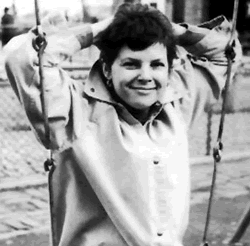Derivation affects us as book buyers and readers in powerful and complex ways. Most of the time it involves aspects that are relatively straightforward and overt, or at least well established. Read-alikes of popular books, for examples, are done on purpose and bookstore buyers are entirely at liberty to separate out personal and professional sensibilities and put a number in the order box if they feel well advised or obligated to do so.
Though the range of derivation varies widely, of course, nonetheless read-alikes, retellings of classics, books that share genre plot underpinnings, and so forth, are essentially advertised as such in the design, marketing and promotional departments. Every now and then, though, one encounters something which comes across as more of a blindside, and which elicits a more visceral, emotional response from us.
First of all I’d like to say that this is very subjective stuff, and should be treated with a great deal of perspective and discretion. I admit to being a bit of a princess and the pea here, and will make sure to correct that impulse by talking about what I think is important, but not getting into specifics here.
 All right, so supposing that there are instances of derivation which fall into a special category of being on the other side of acceptable convention, how would one identify them constructively? More importantly if so identified what then? For me, I associate the identification experience as having a déjà vu element. For example I was reading a picture book f&g some months ago when all of a sudden a strong thought flashed across my mind, a premonition that core elements of Harriet the Spy were about to appear in the book, that a diary filled with honest creative observation was about to be accidentally left behind and discovered by schoolmates, and so forth. This premonition was borne out entirely and in multiple instances.
All right, so supposing that there are instances of derivation which fall into a special category of being on the other side of acceptable convention, how would one identify them constructively? More importantly if so identified what then? For me, I associate the identification experience as having a déjà vu element. For example I was reading a picture book f&g some months ago when all of a sudden a strong thought flashed across my mind, a premonition that core elements of Harriet the Spy were about to appear in the book, that a diary filled with honest creative observation was about to be accidentally left behind and discovered by schoolmates, and so forth. This premonition was borne out entirely and in multiple instances.
Harriet the Spy is an all-time favorite book of mine and I feel both strong attachment and even oddly protective of it. Nonetheless, anything that stimulates self-righteousness should be examined closely and critically. And so I ask other buyers, what’s your take on this issue? Is there a responsibility to truth, fair play, and beloved dead authors that justifies outward discussion, or is it simply a matter of private reaction and not ordering any copies?

There is certainly room for parody of (or tribute to) classics in newer books, but the book you are almost certainly referring to is not parody, and it does seem that at the very least some sort of attribution to Fitzhugh in the dedication would be called for. Even the publisher’s marketing blurb sounds very much like a picture book version of Harriet.
We hear all the time, of course, about multiple authors coming up with extraordinarily similar ideas for books around the same time unbeknownst to each other. There was a fairly high-profile incident a few years ago when two humorous alphabet books with basically the exact same “hook” arrived from two different publishers in the same season.
I suppose it’s possible that the author of the picture book referred to in your post might have been unaware of his own echoing of a classic and widely beloved book, but I am troubled by the possibility that it wasn’t caught by any of the other children’s book professionals who encountered his manuscript along the way. More troubled by the possibility that it may have been caught but ignored.
I wonder what the typical and appropriate response is when an agent or editor sees something like this.
Agreed, filtering for imitation and acknowledgement should be up to the agents and editors. They have more control and more time per title. For book buyers working in Edelweiss, there are usually only a few seconds per title to taste, and then swallow — or spit.
One word: Eragon.
Well, there are two sides to this. On the one hand if I never see another story about a poor orphaned normal child who discovers that he/she has magic and and is sent away to a secret wizard school it will be too soon.
On the other hand some readers (especially if they are not very confident) like to read the same thing over and over again. Remember the popularity of the Goosebumps and the Babysitter’s Club books? Basically the same book, over and over again. If it’s not a blatant knock-off and it’s well written, I’ll give it a try. Imitation is the sincerest form of flattery.